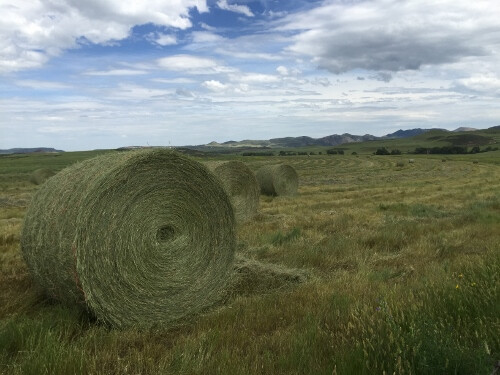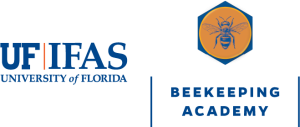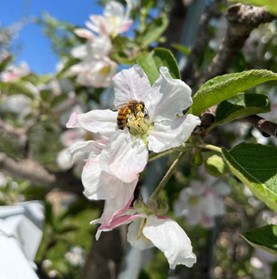A series of studies and reports have drawn attention to maldistributions in the veterinary workforce leaving some communities, especially rural areas, with insufficient access to food supply veterinary services. ( John Maday )
The USDA’s Veterinary Medicine Loan Repayment Program (VMLRP), administered through the National Institute of Food and Agriculture (NIFA), provides assistance to veterinarians who commit to practicing in areas with shortages of veterinary services. NIFA identifies locations in greatest need for veterinarians through a nomination process using prescribed procedures and criteria for eligible nominating officials.
This week, NIFA released a solicitation for nominations for the 2020 fiscal year, along with nomination schedules for 2021 and 2022.
The nomination period for FY 2020 runs from October 7 through November 11, 2019. Nominations for the following two years will follow a similar schedule:
- 2021: October 5 through November 10, 2020
- 2022: October 4 through November 8, 2021
In its notice, NIFA points out that a series of studies and reports have drawn attention to maldistributions in the veterinary workforce leaving some communities, especially rural areas, with insufficient access to food supply veterinary services. The VMLRP addresses increasing veterinary school debt by offering veterinary school debt payments in exchange for service in shortage situations.
Submissions must be made by downloading the Veterinarian Shortage Situation nomination form provided in the VMLRP Shortage Situations section of the NIFA website at: www.nifa.usda.gov/vmlrp, completing the fillable PDF electronically, and submitting it via email to: vmlrp.applications@usda.gov.
See details in the full NIFA notice from the Federal Register.
______________________________________________________________________________________________________________________________________
Funding Helps Ontario Beekeepers with Bee Health and Improve Business.
INNISFIL – The Governments of Canada and Ontario are announcing cost-share funding to support and strengthen the health of the province’s honey bees and beekeeping sector.
According to a release from the Ontario Beekeepers Association, the funding will come through a targeted intake under the Canadian Agricultural Partnership. Both the federal and provincial governments are investing up to $500,000 in order to help beekeepers make improvements to better manage pests such as varroa mites, diseases and other stressors and to grow their bee-related business.
“The health of bee populations is vital given the importance of pollinators to food and seed production,” said Marie-Claude Bibeau, federal minister of Agriculture and Agri-Food. “Our government is committed to providing beekeepers with the tools and support they need to maintain and enhance bee health, while ensuring a sustainable future for both beekeeping and the Canadian agriculture sector.”
“We’re giving the province’s beekeeping sector a boost to help improve and sustain the health of honey bees and to support the important role they play in the agriculture sector,” said Ernie Hardeman, Ontario minister of Agriculture, Food and Rural Affairs. “This is another example of our commitment to protect our agriculture industry while also working to help our hard-working beekeepers, farmers and food processors to succeed in their business efforts.”
“Bees are important pollinators that are essential to maintaining healthy ecosystems and a healthy environment,” said Jeff Yurek, minister of the Environment, Conservation and Parks. “Our government is committed to ensuring pollinators are well protected while supporting our farmers and beekeepers to thrive. Through our Made-in-Ontario Environment Plan, we’re working to protect vulnerable natural areas and other important habitats for future generations.”
Under this special application intake, beekeepers will be able to apply for funding to support the following: equipment to prevent the introduction and spread of disease and increase overwinter survival of bees; sampling and analysis for pests and diseases to increase adoption of integrated pest management and other best management practices; and business supports to help beekeepers grow their business.
According to the release, more detail on eligible activities and cost-sharing amounts for this targeted intake will be available in the near future, with the application intake opening on September 3.
At 23 percent, Ontario’s average overwinter bee colony losses for this past winter were down significantly from the 2017-18 winter, based on beekeepers’ responses to OMAFRA’s spring 2019 survey. But the health of managed honey bees is complex and influenced by several factors, including diseases, pests, genetics, environmental stressors and extreme weather.
In addition to producing honey, Ontario-managed honey bees pollinate a wide range of crops, including apples, apricots, asparagus, blueberries, squash and canola, both within Ontario and in other provinces. For many large scale commercial operation, pollination of crops is an important part of the business model.
The Canadian Agricultural Partnership is a five-year, $3 billion commitment by Canada’s federal, provincial and territorial governments that supports Canada’s agri-food and agri-products sectors.
The beekeeper cost-share funding program has a continuous application process, with applications accepted until funding is fully allocated.
Since June 2018, both the federal and provincial governments have committed cost-share support to almost 1,900 projects through the Partnership to help eligible Ontario farmers, processors, businesses and sector organizations innovate and grow.
Recent revelations about the discovery of counterfeit honey being found in foreign imports have many in the industry advising consumers to “know their producer” by sticking to suppliers close to home. Manitoulin is home to many honey producers and local product can be found at most Island farmers’ markets.









